After an intensive, deep-think (brainstorm) mode on naming past days, I tentatively propose the naming decisions near the bottom of this post.
Hence I’ve eliminated Glean and Sieve from consideration because for ESL speakers such as the Filipinas in my household, they’re phonetically too proximate to (and thus connote) human names (e.g. Dean, Glenn and Steve) for those who didn’t know (and aren’t yet comfortable with) the abstruse definitions. Gleam can be confused with ‘gleam’. Neither capture the blockchain’s beneficial USP essence.
Ditto Cred, Combed, Doughble, Klout and Reptrail each pigeonhole on a specific benefit, but don’t capture the blockchain’s overarching paradigm-shift benefits such as permissionless, trustproof and decentralized. Those names don’t even imply blockchain-related. I’ve been trying to describe in a name some widely sought benefit, but then lose any association to the blockchain and decentralization.
Droot isn’t apt as the overarching name. It could possibly be an add-on in the future for a cute, animated mascot. We currently don’t have the resources (and expertise?) to develop that marketing concept. Michelle explained that her motivation to try the Chums mobile app (even she didn’t know the meaning of ‘chum’) was the cute anime-like mascot character in the promotional imagery.
Sthrong associates with ‘thong’ panty. The failed strong + throng name idea was my attempt to imply an essential role for the decentralization of the crowd in the resiliency and paradigm-shift capabilities of the replicated, Byzantine fault tolerant permissionless, trustproof (aka trustless) blockchain consensus. Yet it seems impossible to capture the detailed abstract, paradigm-shit concepts in a name, such that the desired meanings overpower other undesired connotations and associations.
The user facing website/app name should be easily understood or at least easily recalled, spelt and not easily associated with unrelated concepts. Ideally the conveyed meaning is desirable and widely sought. Attempts to describe, model, and incorporate deep, detailed abstract concepts in the name, typically fly over the head of most people.
It seems virtually impossible to incorporate in a name for this project, all the concepts for the paradigm-shift benefits as follows:
- Fat versus thin protocols (c.f. also)
- Trust-proof (c.f. also, which is a more apropos terminology than trustless)
- Without limitations, i.e. the data is open. Thus users may independently make any semantic fork within data they want and interpret the data anyway they want. I.e. the blockchain is an open, trustproof, permissionless logbook.
- Indelible
- Free market driven and not the dominion of a centralized, rent-seeking parasite
- Reputation history on the blockchain for establishing trusted or congruent (perhaps pseudonymous) reputation w.r.t. others in diverse contexts (e.g. algorithmically detected overlapping clusters circles, rings, groupings, coteries of users who like the same content rank/curate new content for each other). Remains trustproof because of a decentralized, distributed, stochastic incorporation of trust.
- Trustproof algorithms can be built on top of this for everything from better ecommerce to better discussion sites and collaboration on the Internet in any form. In addition to a previously discussed technical design for the disintermediation of Amazon, w.r.t. how for example mobile apps ask for so many permissions (e.g. access to all our contacts list and invasiveness we may not want), the reason we lack choice to refuse is because other features we want aren’t unbundled into another variant of the mobile app. Lack of forking of apps because closed-source databases (and app source code) sustain vendor lock-in which reduces competition and fine-grained choice of features.
- Thus an Inverse Commons which is also referred to as the Cornucopia of the Commons, as opposed to the tragedy-of-the-commons (aka comedy-of-the-commons). IOW, the commons gains from more usage, not vice versa. So the concept of the degrees-of-freedom for data and extents of the logbook being both unbound and unbounded— a boundless, nonrival good resource. For example, free speech is a rival good because political correctness (P.C.) and politics is an economic rivalry. One (controlling elite) group (via manipulation of the “useless idiots”) is trying to capture the political control and thus economic pie. They pressure corporations to put P.C. stipulations on content that can be sponsored by advertising revenue. Or put another way, free speech is not an Inverse Commons if there is centralized control over speech.
My (years-ago) past naming ideas for capturing all those abstract benefits were:


And recently Unl0ckd. But the limitless (in extent, capabilities, or boundaries) concept isn’t exactly more degrees-of-freedom. And unbound, unlocked, and unblocked capture perhaps some use cases of permissionless but don’t capture the append-only ledger (i.e. indelible), decentralization, trustproof and Inverse Commons concepts. They are focused on the negative of what couldn’t be done before (i.e. the user must associate with some prior negative experience to associate with a benefit), versus focusing on new capabilities enabled by the decentralization paradigm-shift. These naming ideas pigeonhole and understate the benefits and conceptual paradigm-shift.

The archival concept sorta implies indelible, but w/o decentralization that’s not assured. I prefer an old idea Stack (or Stackd) over Oodles because it is more serious/technical and it’s both a verb and noun (the pile of things and the act of piling things onto a stack) whereas Oodles is only a noun. Ditto an old idea Hive (or Hivve and recently eeHive) is a verb and noun (both the accumulated honey and the act of accumulating). Stack is only 2 things: the pile and act of piling. Hive is 3 things:
- The storage in the hive.
- The act of storing.
- The teeming multiple of participants very active in the hive.

The critically important concept not emphasized especially in ‘hive’ is the concept of distributed or decentralized, because it implies a centralized focus of the hive. Hive is a locus of activity, implying location and centrality.
Dappsule although creative, catchy and associated with decentralization via the prefixed ‘d’, is focused on (e.g. mobile) apps and not the overarching benefits. It may be appropriate for a future dApp technological framework (i.e. some software and protocol stack for programmers) or dApp browser. It’s too pigeonholed (e.g. user may think only of mobile apps) for the overarching blockchain ecosystem. And it might also be less general or too general than the face of the blockchain ecosystem we want to present to users. For example in terms of being too general, it doesn’t seem very enticing or professional to want to contribute to a Wikipedia or Medium clone on a Dappsule website.
Ditto Bespoke which is an attempt to capture the concept of more degrees-of-freedom in the applications feature set, but is pigeonholed to just features of the user facing applications and doesn’t associate to decentralization, trustproof, and the Inverse Commons. Also ESL speakers think ‘bespoke’ is about bicycle spokes or speaking. They don’t know the etymology that custom orders were spoken about and thus the word came to be associated with customer’s customized orders.
Ndelible is 4 syllables and only captures one benefit of the overarching paradigm-shifts. One or 2 syllables is best for an Internet name.
Etonomy
As previously mentioned, Etonomy is more likely confused with something about economy (including possibly the thrift or efficiency instead of the free-market-based meaning), than any association with a new E token currency and autonomy. Thus not readily linked to blockchain decentralization. There’s also the possible green energy efficiency (mis-)association. Etonomy isn’t a computer science, geek-cool technology name such as: ‘tangle’, ‘fibers’, Iota, Factom, EOS, Tether, Tron, Tezos, Ontology, Lisk, Loopring, Linkey, Theta, Elastos, etc.. Etonomy can be taken to be about economics, not computer science per se. Although game theory and economics are critical to the computer science of blockchain, the merger of these disparate fields is still very new and not yet established as computer science in the mainstream.
Could a branded meaning of the name could be established over time? I still think Etonomy was an innovative name idea, but it hinges on a new E token becoming associated with blockchains and decentralization. Thus it puts the cart before the horse and makes a presumption about market penetration that might never occur. And I’m less thrilled by now about E for a token given the possible (mis-)association with green energy efficiency.
Rather the cryptonomy is the already established generalized name. In that light, Etonomy is not so unique after all and thus is less brandable than I originally thought! I will prefer in my selections below, the more unique and brandable names we have thought of. George Gilder’s “Life After Google: The Fall of Big Data and the Rise of the Blockchain Economy” cryptocosm is another precedent for a generalized decentralized, blockchain ecosystem term. Note his affiliation with altcoin project Blockstack and whether we can come up with a better name than that.
Tentative Naming Decision
The etymology of a precedent of abbreviating ‘distributed’ as a single-letter ‘d’ prefix is in for example DVCS (distributed version control system). Then we have Vitalik’s (or actually first was Larimer’s) adoption of the prefixed ‘d’ for DACs, DAOs, and dApps (aka Dapps).
Dverse or Dvrse
The general population won’t initially associate a prefixed ‘D’ with distributed or decentralized. Thus an advantage that ‘diverse’ at least means something. Michelle says it’s easy to remember and doesn’t get confused with for example names of people, but didn’t grab her as much as Oodles (of stuff).


Thus I somewhat disagree with the prior feedback that people don’t want diversity (aka variety) in content. The problem is the contention over meaning. It’s true that some people may associate diversity with politically correct egalitarianism. But if we don’t actually spell it ‘diverse’ then it’s a mystery/nebulous/open-ended as to what the website actually is or does. For that reason as well as being more brandable/unique and technical in appearance, I probably prefer the de-vowelled, shorter Dvrse spelling. I’m not concerned the additional ambiguity might incur inconsequential collateral damage in a few pliable minds wandering to strange, tangential associations, e.g. ‘divert’ or ‘divest’. Universe, megaverse, multiverse and omniverse are precedents that ‘verse’ connotes something astral/cosmological/metaphysical other than written verses. The multiverse is technologically related to blockchains via the Byzantine Generals problem.
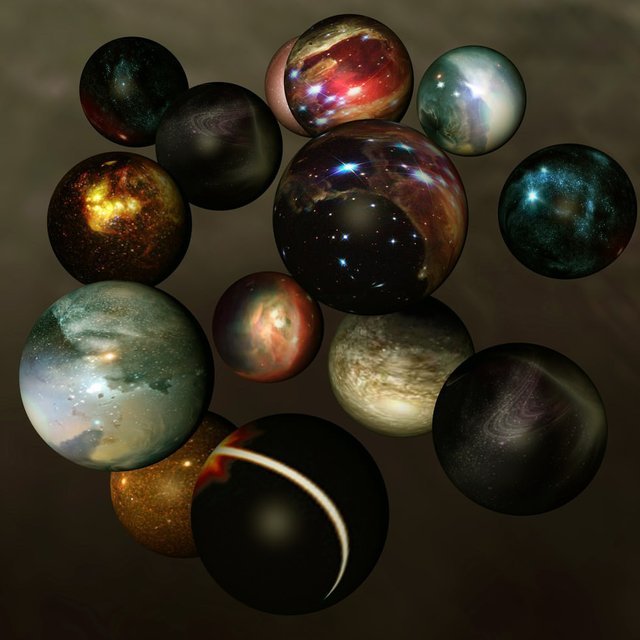
Realms
Realm can be a sovereign dominion or also a field or domain of activity or interest.
Vocabulary.com says:
n. a domain in which something is dominant
A realm is an area that is ruled by something. If you are a controlling cook who doesn’t like anyone to do anything else in the kitchen, then the kitchen is your realm.
Realm comes from the French for kingdom, but since there aren’t so many kings […] left in the world, you’ll more often find it referring to non-royal spheres. That could be the sphere of a special kind of knowledge, like the realm of biology, or the political realm. Or it could be an area dominated by some group. Little Italy was famously the realm of the mafia; Hollywood is the realm of film stars.

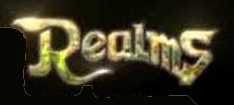
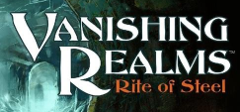
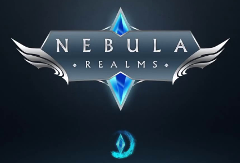
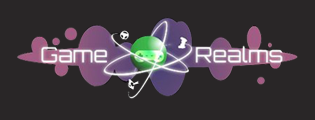
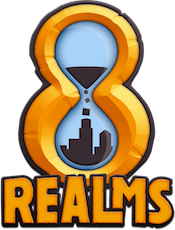
Realms (w\non-games-oriented logo) implying a plethora of orthogonal (personalized) dominions (e.g. aforementioned decentralized like-minded curation coteries), is a perfect fit for the portal of default dApps implementations, e.g. decentralized Wikipedia and Medium clones. Dvrse is the best blockchain name thus far (including its wider ecosystem of Dapps). Perhaps the currency token name could be D (conceptually decentralized, digital ether) or digits (conceptually digital). Perhaps blips or quanta for the smallest token unit a la Bitcoin’s satoshis.
| Name | Domains |
|---|---|
| Dverse Dvrse Digiverse | (.com/.net/dvrse.me/.org/dvr.se/digiverse.com/.org/digiver.se unused, dvrse.com $2895, dver.se for sale, diverse.com is termite control, digiverse.net $4880, dvers.es/dvers.eu/ dvrsedvrs.ec/dvrs.es/ d-vrsed-vr.sed‑verse.net/d‑ver.se/ digiverse.me/.to/ dvrsefoundation |
| Realms | (.app/.co/.com/.net/real.ms/realmz.net/.org/relmz.com ₙₒₜ ᵢₙ ᵤₛₑ, .org personal blog, .me $4950, .us $995, .xyz $2145, realmz.com $27300, relms.com/rlms.com ᶠᵒʳ ˢᵃˡᵉ, .ai/realmzrealm.cash/.es/.sg/.sh/realme.sh/ realmsapp/realmsblog/ realmsid/realmsto/realmsus/ realmszonerealmzapp/realmzus/ |
A bit of a quick reply I'm afraid, as a bit late in the day for me.
First of all, thanks for gathering together a list of concepts for the paradigm-shift benefits.
I get your points over steering away from my favoured Dappsule and Etonomy.
Definitely preferable for me as the de-vowelled Dvrse spelling; escaping too any "verse" misunderstandings. I'm pleased you've stuck with the positivity of the "diversity" theme.
As for Realms, I don't dislike the name. It suggests cornucopia in a more subtle and serious way than Oodles and has the suggestion of mystery and unlimited potential about it. Btw, do you see the pronunciation being an issue at all for non-English speakers; tackling the "ea", otherwise perhaps favouring, say, Relms / Relmz?
So with that decision, you would be OK with the currency letter "D" only included in one of the names (for the sake of continuity with branding etc), whereas "E" is in both Dvrse and Realms? Certainly "D" retains the simplicity of "E".
Yes, looking good!
I like a single letter currency whatever it may be as a strong point of difference. “E” or “D” works equally well depending on what blockchain name you choose obviously. I’ve liked Dverse (Dvrse) ever since it was floated so will welcome it if finally chosen, despite Etonomy probably being my personal preference (but I understand your reasoning). I sat on Realms for a day before I put my two cents in. But I can confidently say I like it. I can see how it implies a personal power to invite or exclude into one’s sovereign space/place. And I see potential in double meanings (Real-MoneySolutions) and breaking it up into various departmental functions (Realm-T; Real-micro transactions). It also took me back to the sovereign/freeman movement (not sure if that would be a positive association). In any case, I like it a lot.